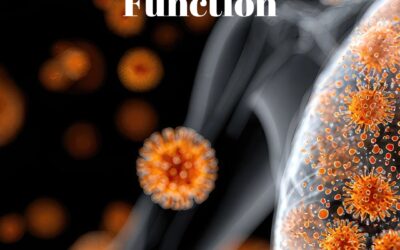Node Smith, ND
The body’s endocannabinoid system, due to the critical role it plays in regulating neurotransmitter signaling, is an enticing target for drug development against disorders associated with anxiety, stress, and repetitive behaviors, such as obsessive-compulsive disorder (OCD). A comprehensive new review article that provides an overview of this complex system, endogenous and exogenous cannabinoids, results of animal studies and human trials to date, and recommendations for future directions is published in Cannabis and Cannabinoid Research, a peer-reviewed journal from Mary Ann Liebert, Inc., publishers.
Endocannabinoid system plays a critical role in regulating neurotransmitter signaling
The article entitled “The Endocannabinoid System: A New Treatment Target for Obsessive Compulsive Disorder?” was coauthored by Reilly Kayser, MD, Ivar Snorrasson, PhD, Margaret Haney, PhD, and H. Blair Simpson, MD, PhD, Columbia University Vagelos College of Physicians and Surgeons, and Francis Lee, MD, PhD, Weill Cornell Medical College, (New York, NY). The researchers present the evidence that links the endocannabinoid system to the pathology underlying OCD. They also explore the potential for targeting this system to relieve symptoms of OCD and related disorders such as anxiety, tic, and impulse control disorders. The review includes and extensive overview of cannabinoids made by the body, and exogenous cannabinoids, including phytocannabinoids found in the marijuana plant and purified and synthetic cannabinoids.
Authors suggest continued pharmaceutical development is warranted
Based on both animal study data showing anti-anxiety and anti-compulsive effects of cannabinoid agents and on preliminary human clinical trial data, the authors suggest that continued pharmaceutical development is warranted. Which cannabinoid agents to test and how to measure their effects will be among the important questions to consider in designing future studies.
“A place for cannabinoid-based medicines in psychiatry?”
“Is there a place for cannabinoid-based medicines in psychiatry? Evidence from animal and human studies points to the endocannabinoid system as an important regulator of emotionality, but how can we exploit this knowledge for therapy? This review article offers a critical assessment of the evidence, focused on obsessive compulsive disorder, and clues to future research,” said Daniele Piomelli, PhD, Editor-in-Chief, University of California-Irvine, School of Medicine.
Source:
- Kayser, R R. et al. (2019) The Endocannabinoid System: A New Treatment Target for Obsessive Compulsive Disorder?. Cannabis and Cannabinoid Research. doi.org/10.1089/can.2018.0049.
 Node Smith, ND, is a naturopathic physician in Humboldt, Saskatchewan and associate editor and continuing education director for NDNR. His mission is serving relationships that support the process of transformation, and that ultimately lead to healthier people, businesses and communities. His primary therapeutic tools include counselling, homeopathy, diet and the use of cold water combined with exercise. Node considers health to be a reflection of the relationships a person or a business has with themselves, with God and with those around them. In order to cure disease and to heal, these relationships must be specifically considered. Node has worked intimately with many groups and organizations within the naturopathic profession, and helped found the non-profit, Association for Naturopathic Revitalization (ANR), which works to promote and facilitate experiential education in vitalism.
Node Smith, ND, is a naturopathic physician in Humboldt, Saskatchewan and associate editor and continuing education director for NDNR. His mission is serving relationships that support the process of transformation, and that ultimately lead to healthier people, businesses and communities. His primary therapeutic tools include counselling, homeopathy, diet and the use of cold water combined with exercise. Node considers health to be a reflection of the relationships a person or a business has with themselves, with God and with those around them. In order to cure disease and to heal, these relationships must be specifically considered. Node has worked intimately with many groups and organizations within the naturopathic profession, and helped found the non-profit, Association for Naturopathic Revitalization (ANR), which works to promote and facilitate experiential education in vitalism.
Node Smith graduated from the National University of Natural Medicine (NUNM) in 2017, and is currently licensed as a naturopathic physician in Oregon and working towards becoming licensed in Saskatchewan, Canada as well.





















